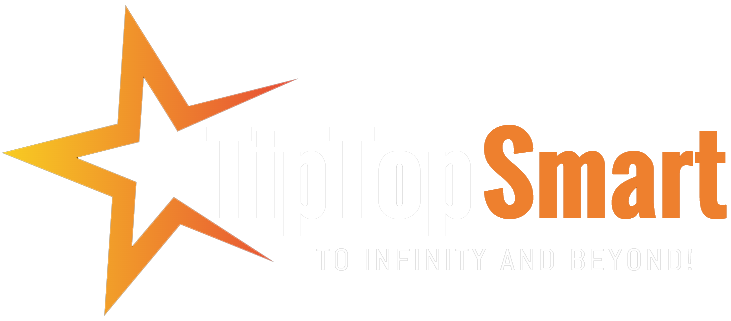In today’s fast-paced business world, motivating your team to excel is a challenge that every startup founder faces. You might think that offering cash bonuses would be the most effective way to boost productivity. But think again, because there’s a surprising twist to this age-old belief.
It turns out, you can motivate your employees more effectively without breaking the bank. How? The answer might make your taste buds tingle – pizza!
This isn’t another theory tested on lab rats; it’s a real-world experiment that challenges conventional wisdom.
Renowned behavioral economist Dan Ariely conducted a groundbreaking study that uncovered a startling revelation. The power of pizza as a workplace motivator outperformed cash bonuses, and here’s how he did it.
I'm calling bullshit on this one. pic.twitter.com/sU2XpLOElD
— Dripped Out Trade Unionists (@UnionDrip) October 17, 2022
The Pizza Productivity Experiment
Ariely’s study took place in an Israeli semiconductor factory, where employees were presented with one of three different motivational messages at the beginning of their workweek.
These messages offered them a choice: they could either receive a voucher for a free pizza, a $30 cash bonus, or a simple compliment from their stern boss, delivered in the form of a text message reading, “Well done!”:
- A cash bonus of approximately $30.
- A voucher for a delectable, free pizza.
- A complimentary text message reading “Well done!” from the boss.
The employees who didn’t receive any message served as the control group for the study. The productivity of all four groups was meticulously measured by counting the number of computer chips each worker was able to assemble per day. To sweeten the deal, Ariely promised that if they hit their target goals, they would receive their chosen reward.
The Rankings
One might assume that money would be the top motivator, after all, $30 can buy you two delicious pizzas. However, the results of the study were nothing short of eye-opening.
On the first day, all three incentivized groups outperformed the control group.
- Pizza: (6.7% increase in productivity, day1)
- Praise: (6.6% increase in productivity, day1)
- $30 cash: (4.9% increase in productivity, day1)
What Ariely’s experiment uncovered is truly fascinating. On day one, pizza reigned supreme, driving a remarkable 6.7 percent increase in productivity over the control group. In comparison, cash, although not too shabby, only motivated a 4.9 percent increase:
The Surprising Champion: Praise
What truly captured the attention was the unexpected star of the week—the power of genuine praise.
Decades ago, Dale Carnegie, in his timeless classic “How to Win Friends and Influence People,” emphasized the profound impact of praise, highlighting the deep-seated human craving to be appreciated.
As William James aptly put it:
“The deepest principle in human nature is the craving to be appreciated.”
When you take the time to commend and praise your team members, you’re not only satisfying this intrinsic craving but also unleashing a powerful motivator.
Ariely’s experiment demonstrated this brilliantly. A simple text message of acknowledgment from the boss boosted productivity. Now, imagine the potential of heartfelt, authentic praise.
The Cash Bonus Backlash
But here’s where it gets even more intriguing.
On the second day, the cash-motivated group experienced a significant setback. Their productivity plummeted by a staggering 13.2 percent compared to the control group.
Over the course of the week-long experiment, their overall productivity declined by 6.5 percent. The lesson here? Cash incentives can sometimes backfire, and the pizza and compliment groups consistently outperformed the control group throughout the study.
The Psychology Behind Pizza’s Power
In the competitive landscape of startups and businesses, not everyone can match the salary and perks offered by giants like Google. But that doesn’t mean you can’t foster a motivated and productive team. The key lies in effective communication and showing your appreciation for your employees.
So, why does a slice of pizza triumph over cash in motivating employees?
Dan Ariely’s hypothesis revolves around the concept of extrinsic versus intrinsic motivators. In other words, people tend to value feeling appreciated and having their hunger satisfied more than the prospect of a monetary incentive. It’s a matter of intrinsic motivation, that inner drive that pushes individuals to excel.
Ariely’s theory aligns with a quote from Adam Grant, a psychology professor at Wharton, who stated,
Adam Grant:
“Extrinsic motivators can stop having much meaning — your raise in pay feels like your just due, your bonus gets spent, your new title doesn’t sound so important once you have it. But the sense that other people appreciate what you do sticks with you.”
In essence, giving someone a piece of your pizza and a heartfelt compliment may have a lasting impact on their motivation and performance.
So, the next time you want to boost your team’s productivity, consider ordering a delicious pizza to say thanks. It’s a small gesture that can yield significant results. While you’re at it, grab a slice for yourself; your own productivity might just thank you too.
Conclusion
In conclusion, this study reveals a fascinating aspect of human psychology in the workplace. It shows that the value of intrinsic motivators, like appreciation and the simple pleasure of a slice of pizza, can surpass the appeal of monetary rewards.

![[PIZZA MOTIVATES MORE THAN CASH?] Bizarre Study Finds Pizza Motivates Employees More Than Cash Bonuses [PIZZA MOTIVATES MORE THAN CASH?] Bizarre Study Finds Pizza Motivates Employees More Than Cash Bonuses](https://tiptopsmart.com/wp-content/uploads/2023/11/PIZZA-1-1024x576.webp)